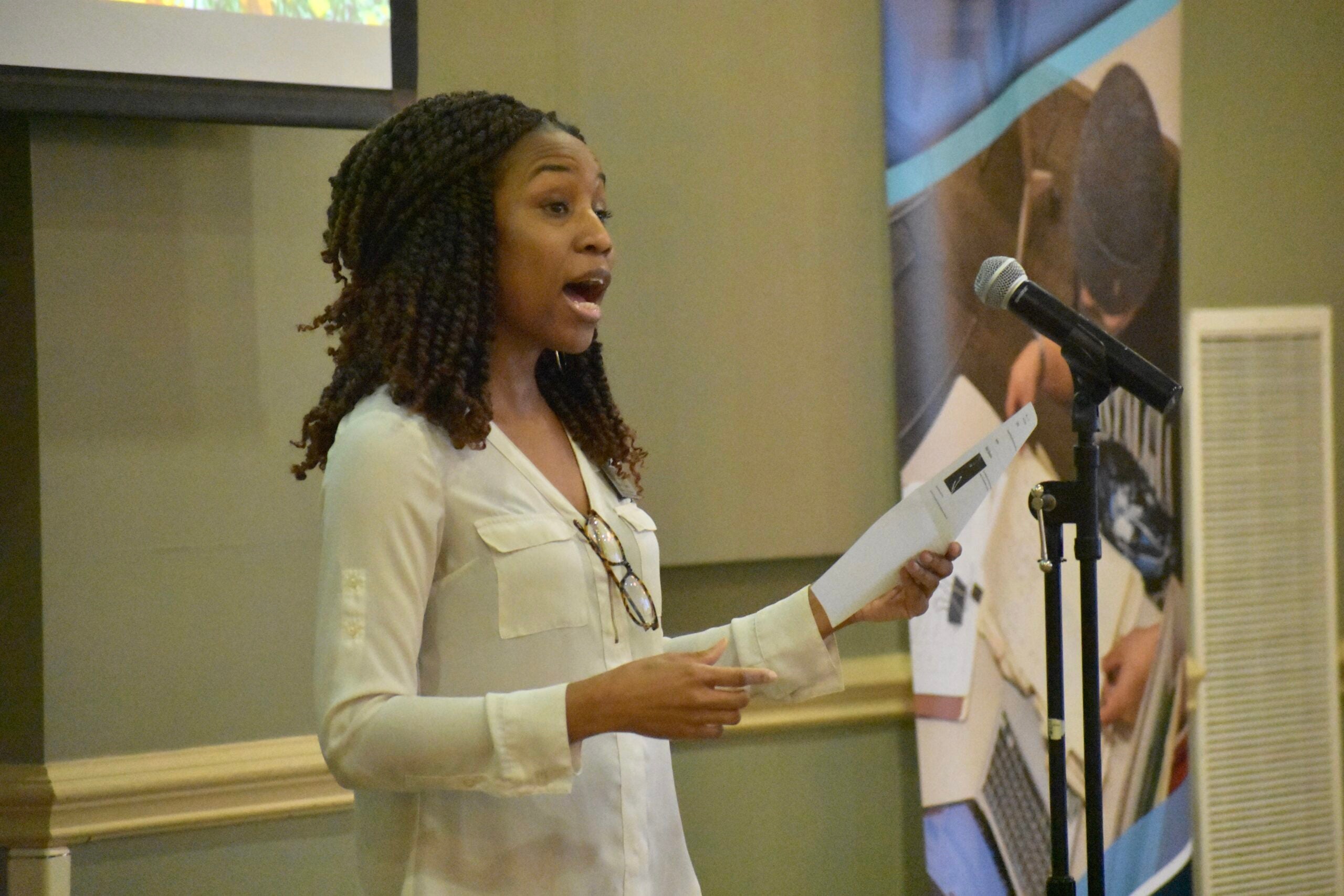On Wednesday, Feb. 15, Augusta University’s English and Languages Department hosted an African American read-in event on the Summerville campus to celebrate Black History Month.
Students and university faculty took turns reading selections from well-known African American authors such as Nikki Giovanni and Octavia E. Butler.
“I think it was really important for people to come to the read-in to not only read, but to also sit and enjoy the experience,” said participating reader Emily Johnson, who is a senior English major at the university. “I really think that it’s important, especially during Black History Month, to honor Black voices and make sure they are uplifted.”
Johnson, who read a selection by Butler, said reading has always pushed her to grow her empathy by experiencing life through another’s eyes, and immersing oneself into their world.
“I think, in order to have a good relationship with anybody, you have to be able to put yourself in their shoes,” she said. “[Reading] has honestly made me a better person … because if you are more aware, you can be kinder.”
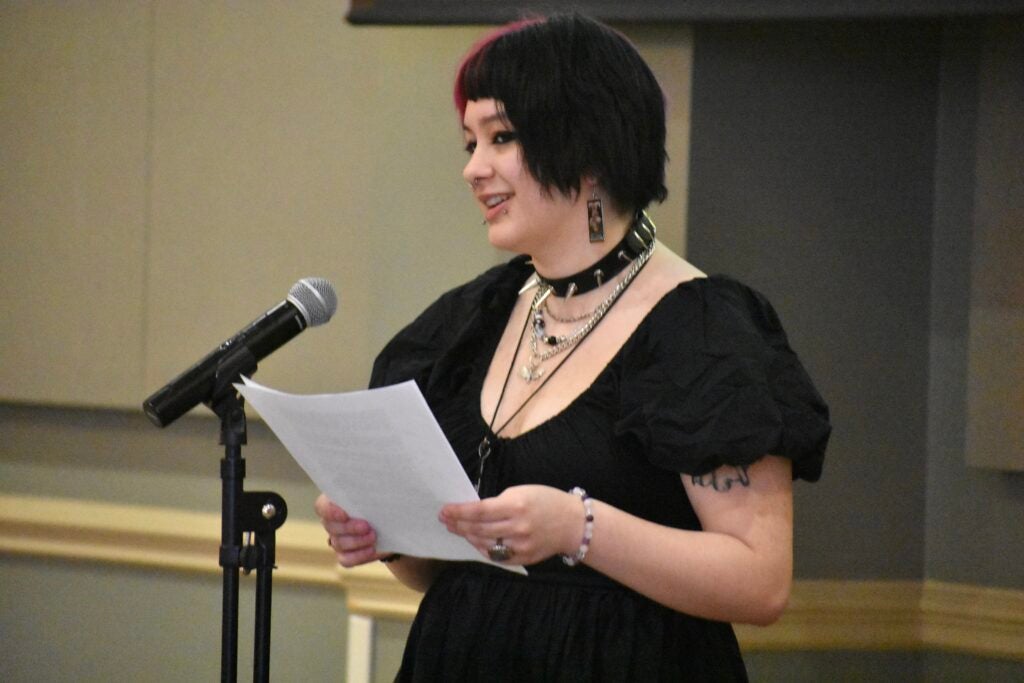
Another participating reader Aaron Hayes, who is a junior pursuing a major in literature, said he thought the event was important because it allowed participants to analyze how different authors affected readers.
“A lot of the writers who have influenced me like Toni Morrison, Audre Lorde, Octavia E. Butler, they are writers that have so much power and beauty within the words and the stories that they tell,” he said. “It is these stories that are so deeply authentic and important.”
Hayes also said he felt it was important for the country to honor minority voices, and see how “overlook” people experienced different events in history.
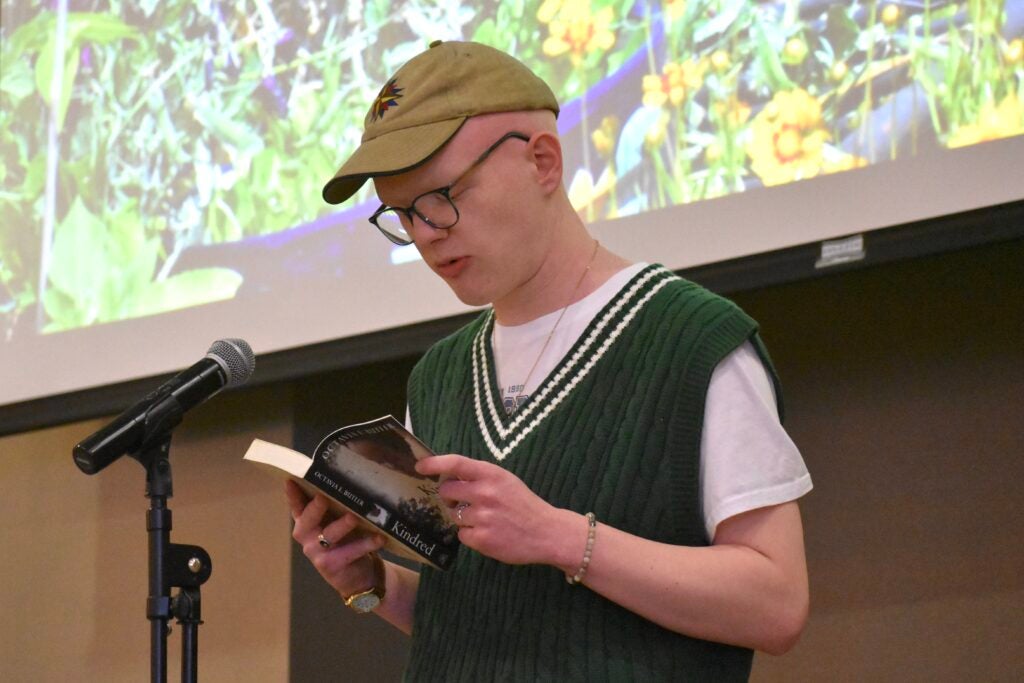
Keynote speaker and 2022-23 visiting scholar Latria Graham spoke at the event and read several selections from her many works.
One particular story she chose centered around the memory of growing up in the rural area of South Carolina, and helping her father sell fruits and vegetables at a stand.
MORE: Something You May Not Have Known: Butterfly McQueen had Augusta ties
“‘Before grocery stores, before food could be delivered to your door, hot and ready, this is all your people had,’” she read, referring to her family’s old farm.
Graham, who is now a renowned nature writer, told students and other attendees about her different experiences growing up, and what it meant to live off a farm.
“I remember what it was like to be 9-years-old, I remember that kind of work. I’m talking 1,000 watermelons a day … and when I went to Dartmouth, sometimes my dad was like ‘okay this is how many watermelons it takes to pay tuition,’ she said. “In some ways, even though that’s 20 years in the rearview, I still calculate my life in tomatoes and watermelons.”
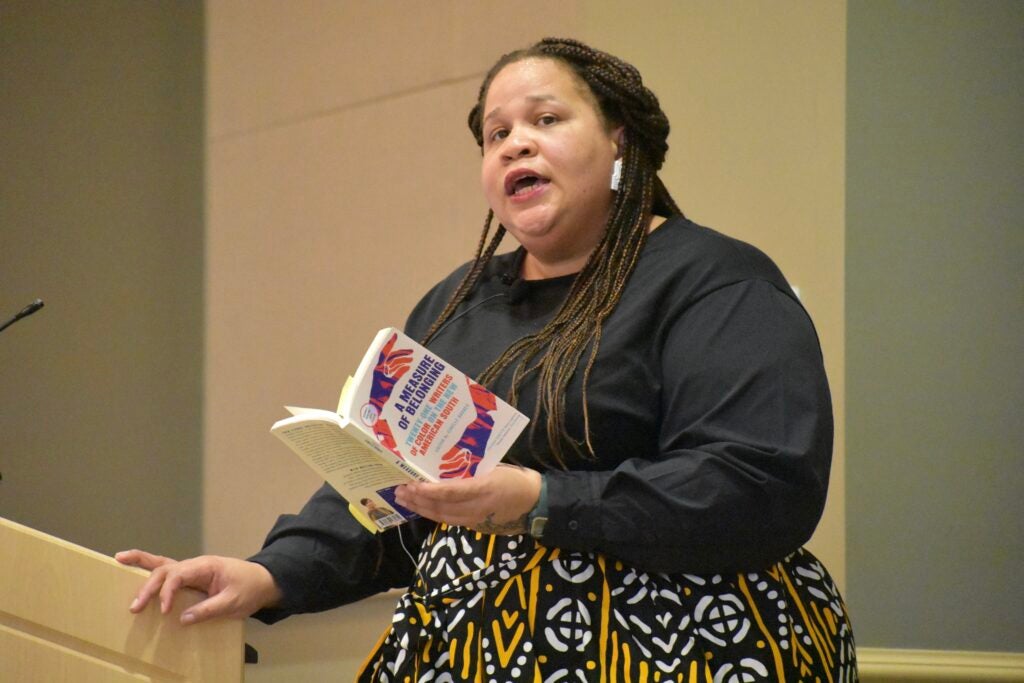
With her chosen selections, Graham said she wanted to bring people into a world they might not be familiar with because she believes education should include various perspectives. By learning and seeing things from another’s eyes, Graham said students can learn more about themselves, and realize that there is not a singular “right” way to live.
“Where you come from and the way you see the world is valid,” she said. “Understanding why you are the way you are often ends up helping someone else. Emily Bernard said, ‘safe stories have never saved anybody’s life.’”
After Graham spoke, more participating students and faculty ended the event by reading additional selections, including some original works.
Former Augusta University student Lily McInnish recited a work which talked about being a mixed child in today’s world. With her light-colored face and afro-styled hair, McInnish’s poem spoke on how she felt misplaced and divided whenever she tried to identify herself as either African American or Caucasian.
“Not black enough for black, not white enough for white,” she read. “My best option was ‘other’ … what a self-esteem boost … constantly being pulled in two different directions.”
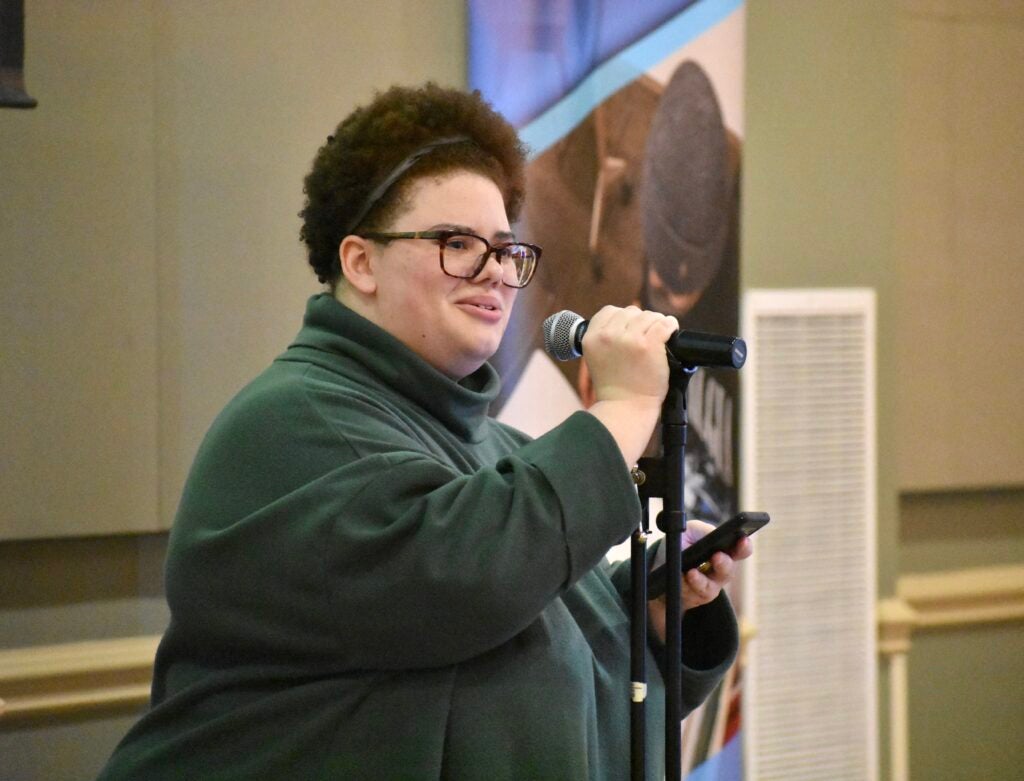
McInnish said her poem was inspired by her own experiences as a biracial kid and how taking SATs in high school always gave her a taste of identity crisis. However, with events celebrating these differences and honoring African Americans, McInnish said she believed it allowed steps for further acceptance and progress to be championed by students.
“I think that everybody’s individual histories are important, and I think sharing those histories through events like this can be really wonderful for the community,” she said. “I think in this kind of tense time with culture wars … it’s nice to be able to confront those kinds of things just by the sharing of individual stories.”
As attendees of all different backgrounds sat and listened to African American voices, it was easy to see how people connected with each other by honoring influential writers and discussing their individual impacts on readers.
Liz Wright is a staff writer covering education, lifestyle and general assignments for The Augusta Press. Reach her at liz@theaugustapress.com

